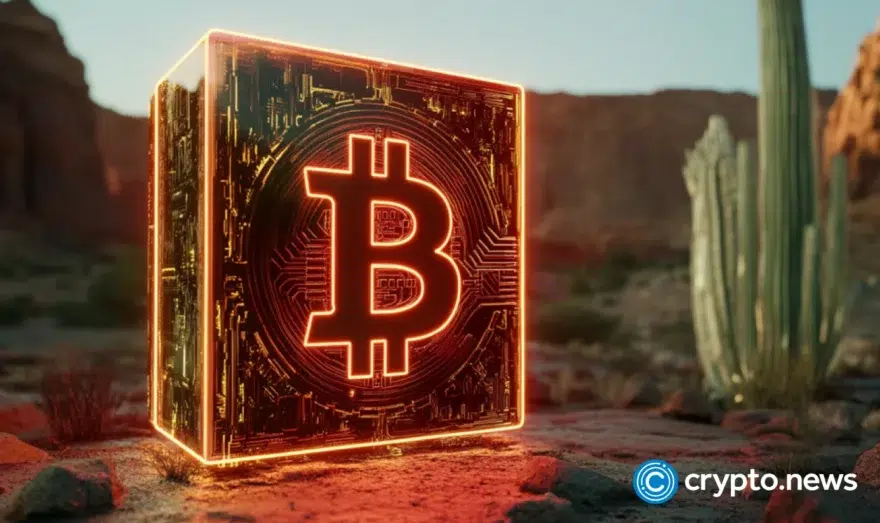Evolving threats in cryptocurrency: The outdated wallet dilemma | Opinion

Disclosure: The views and opinions expressed here belong solely to the author and do not represent the views and opinions of crypto.news’ editorial.
As someone who has observed the crypto revolution unfold from the industry’s front seat, I find it hard not to be awestruck by the magnitude of this burgeoning domain. Digital assets and blockchain technology not only surpassed a $3 trillion market cap, but experts also predicted that they would keep on growing at a higher rate. Undoubtedly, the crypto market has transformed from an obscure curiosity into a global economic powerhouse, shaping brand-new frontiers in finance.
As most of us marvel at the growth, a recent issue has threatened to undermine the security of billions of dollars in crypto assets: outdated, cold wallets. As experts and enthusiasts, we’re more than familiar with these convenient little devices. Designed to store users’ private keys offline, away from the prying eyes (and hands) of hackers, cold wallets have been hailed as the gold standard for securing digital assets.
Safeguarding your crypto: The vital role of cold wallets
Indeed, they’ve served us more than well in the past. By their very nature, cold wallets provide a robust layer of security in the digital currency ecosystem. By storing these currencies offline, a significant number of risks associated with online storage—such as cyberattacks, phishing scams, and other forms of all-too-common digital thefts—can be eliminated.
Such a level of security has been crucial for many reasons. One, it’s been vital in instilling confidence among investors and everyday investors. Secure storage for digital assets has encouraged more people to join the crypto space, knowing that their investments are protected against potential cyber threats. This has fostered a unique sense of trust and stability in a landscape that’s often viewed as uncertain or too risky.
Moreover, the robust security offered by cold wallets has enabled not just safe storage but also an easier transfer of assets. It has allowed users to retain complete control over their investments without the need for intermediaries.
This autonomy is a fundamental principle of the cryptocurrency philosophy—decentralization and the democratization of finance, and cold wallets have been right at the heart of this movement.
The crypto industry has recently been met with an increasingly complicated issue. Instances of cyber threats have disturbed the foundation of the industry, shaking many investors’ faith in the security measures that we once deemed impregnable. Now, as the complexity of threats evolves and rises, cold wallets—once-reliable safeguards—are beginning to show their age and the dangers that come with it.
Legacy wallet vulnerabilities threaten crypto security
The recent report on the vulnerability of outdated wallets has cast a shadow on what’s been a crypto-security cornerstone. A concerning flaw in legacy storage systems, more explicitly impacting browser-generated wallets between 2011 and 2015, has placed a staggering $1 billion in cryptocurrency at potential risk.
The issue is rooted in BitcoinJS, a well-known JavaScript library that is used to generate crypto wallets. According to a report, the particular JavaScript used an open-source code from a Stanford University student’s page. It stopped wallets from adding sufficient randomness when generating cryptographic keys.
The code persisted in BitcoinJS until early 2014—but by that time, a number of cold wallets and platforms had integrated the library. This has left BitcoinJS and any other project dependent on these JavaScript libraries exposed and, ultimately, affected, thus reminding us how evolving technology can leave older systems vulnerable.
The affected wallets span a range of cryptocurrencies, not limited to Bitcoin (BTC). Assets such as Zcash (ZEC), Litecoin (LTC), and Dogecoin (DOGE) could also be at risk, underscoring the wide-reaching impact of this security lapse.
The implications of this discovery are far-reaching. Millions are now at risk of crypto theft as attackers might exploit the issue to generate private keys corresponding to these wallets and gain unauthorized access to the funds they contain.
As a result, we are facing an erosion of trust among users. Trust is the bedrock of any financial system, and crypto is no exception—discoveries like these shake users’ faith, especially those who were early adopters of the technology.
Furthermore, news of potential exposures to risk can lead to market panic and result in volatility. I wouldn’t be surprised to see investors rush to transfer assets or, worse, lose confidence in the security of digital currencies altogether. This scenario is a hard pill to swallow, but for industry experts, it’s a call to action to reassess and reinforce our security measures.
Choosing the right wallet: A crucial step
But, before we go into the right steps that should have and can be taken moving forward, one fact should be cleared: despite the alarming number of wallets impacted by the issue, not all will feel the consequences equally. For one, it’s hard to determine the precise timeline of the problem. Thus far, we know that owners of those generated between 2011 and 2015 have been exposed. Still, the amount of work necessary to unlawfully profit from these wallets varies since the more recent a wallet is, the harder it is to attack. This means that the ones created in 2014 are much harder to compromise than those from 2011.
There is another good news: more than a million users have received alerts of the matter in a timely manner and warned about the vulnerabilities in question, allowing them to react adequately.
Now, let’s dive into the crux of the matter: the importance of choosing the right wallet. It goes without saying that when selecting one, you need to be aware of the risks associated with old wallets. Using strong passwords and storing private keys offline are pivotal to ensuring safety.
But, to get to these steps, others must be taken before them. First of all—before purchasing a wallet, it’s absolutely critical to ensure you’re getting them from reputable vendors. Avoid third-party sellers and cross-reference them with the manufacturer’s reseller page to ensure the wallet has been purchased from a trusted source.
Additionally, it’s vital to ensure the wallets have security features that are as robust as possible, such as multi-signature options, biometric authentication, and tamper-resistant seals. These would add incredible layers of safety and make unauthorized access to digital assets much harder.
Here, compatibility is just as significant. Users should always check if the wallet they’re buying supports the cryptocurrencies they own or plan to buy. The reason for this is that some wallets may not support certain altcoins or newer currencies.
Finally, backup and recovery options play a crucial role. Users should always check if the wallet offers straightforward recovery options. In the event of a lost or damaged device, you should be allowed to recover your assets efficiently.
In facing the challenges of outdated wallets, we’re reminded that safety in the crypto world isn’t a static notion. It’s a morphing battleground where staying one step ahead is crucial. It’s not enough to just sidestep today’s threats—we have to be prepared for the challenges tomorrow might bring.
To this end, it’s imperative for investors, regardless of the size of their holdings, to be equipped with the most current and secure technology. The responsibility doesn’t end at purchase—it extends to regular audits and security measure updates.
So, whether you’re a newcomer or a seasoned trader—take action. Review your current step up. Consider upgrading to a safer version if you’re using an older wallet. Regularly check for updates and always stay on top of the industry’s developments.
After all, in the world of cryptocurrency, the best defense is a proactive approach. By remaining vigilant, we don’t just safeguard our digital assets. We contribute to the overall stability of the entire crypto ecosystem.















